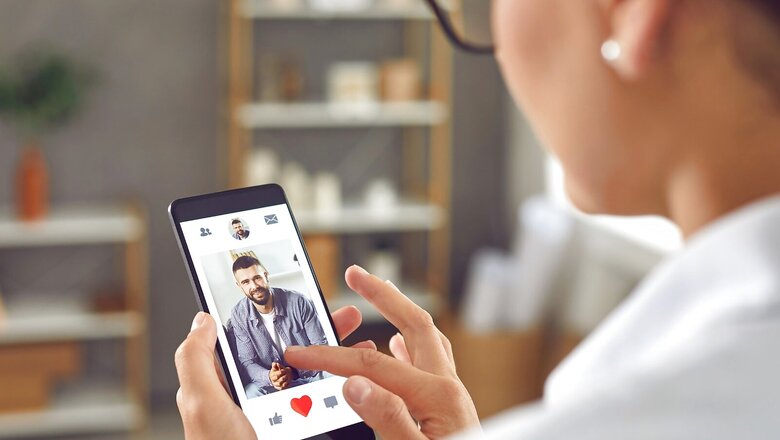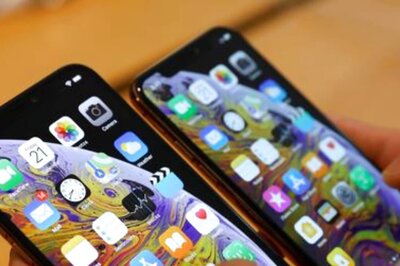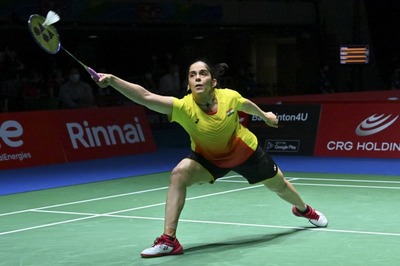
views
Another murder, another innocent life silenced, another attack on a woman’s agency.
Much like the 2012 Nirbhaya rape case or the Jessica Lal murder case of 1999, the Indian society has sat in judgment of the Shraddha Walkar case too, questioning the victim and her choices. Her choice of a partner from a different religion in defiance of her family, her choice of living in with the partner, her supposed ‘choice’ in not leaving him despite violence, and her choice of subscribing to a dating app in the first place.
As bone-chilling details of the gruesome murder make their way to newspaper headlines and television debates, many young women are coming to share deep-seated fear of online dating.
Has the Bumble Bubble Burst?
Sensor Tower Usage Intelligence data reveals that global usage of Tinder, Bumble and Hinge collectively grew 17% in January 2022 when compared to the same month in 2019.
The onset of the Covid-19 pandemic in 2020 confined many to their homes with nothing but electronic devices to stay connected with the outside world. As a result, alongside wearing masks and using sanitiser, using dating apps to find like-minded people also became the new normal. But the Shraddha Walkar case may change the status quo back.
Talking to News18, Pragya, a lawyer by profession, expressed her fear of using dating apps in the aftermath of the case. “I have been a regular user of dating apps. While I have always been mindful of the kind of people I match with, it was never motivated by fear. But now, I am reluctant to even talk to anybody from these apps. The Shraddha Walkar case has left me scarred,” says the 25-year-old resident of Delhi.
Pragya’s apprehensions were shared by Lucknow’s Yasmin as well as Kolkata’s Suporna. The former says she has quit the platform, while the other says she will think twice before swiping right.
But how justified are these fears and do these dating apps have a role in propagating crime? News18 spoke to relationship coaches across India to find out.
The Murky Reality of Online Dating
“If we are talking about the fears, they are very justified. However, in today’s world, where our social circles are shrinking, real world contact is minimizing – work from home and remote learning/working are becoming the new norm. It would be rather impractical to think of a scenario where everyone meets their next date or potential partner when they are out for coffee in their PJs and masks, right?” says marriage therapist and relationship coach Kasturi M.
“If you are comfortable with the medium, sure go ahead and use it. But a lot can be averted or nipped in the bud, irrespective of the medium, when an individual becomes more self-aware and sets some non-negotiables in place and stands up for those values, no matter how uncomfortable or difficult it might be,” she adds.
When asked about the uproar against dating apps after the Shraddha Walkar case, Kasturi tells News18 that pinning the blame on a dating app may not be entirely correct.
“Shraddha and Aaftab met through an app and this incident didn’t happen the next day. According to whatever is on the news, the victim underwent many months of physical and emotional abuse before this incident happened. Hence, blaming online dating isn’t justifiable. But yes, the online world is just a glimpse into an individual’s complex inner life and can definitely not be a reliable source of information. You might not be able to assess a person with a 120-character word limit, and in order to develop an intimate bond, knowing the person better should be prioritized.”
The Perils of Swiping Right
Most people cannot fake beyond three months, says sexuality and relationship coach Pallavi Barnwal as she dissects modern relationships and the importance of time and boundaries in online relationships.
“I agree that the fears have certainly escalated but I think this accusation holds no ground and only serves to reinforce the stigma we have around dating apps because a lot of people believe dating apps are facilitating premarital sex, easy sex, lots of sex and still today families are grappling with this idea. There is also jealousy because of the fact that a woman made a daring choice (although it turned out to be lethal in the long run) and how many women till today make such radical choices of leaving their disagreeing family and staying with a lover before marriage. The blame is deep-seated and spawns from deep hatred towards women’s agency and their ability to make choices for themselves,” Barnwal tells News18.
Don’t Quit Yet
Research shows that offline relationships have a better chance of thriving than the ones online. Precisely because most offline meetups happen as a chance meeting where people tend to lean more towards their authentic selves compared to online where we have a thoughtfully curated profile and posts.
But does this mean that Shraddha-Aaftab is a prototype of all relationships stemming from dating apps? No, say relationship counsellors as they point out the signs to look for when scrolling through a dating app.
First, filter out people who are not genuine and feigning interest, especially with the skewed dating dynamics. Notably, the ratio of heterosexual men to women on dating apps is 20:1. That is 20 men to every woman. Also because of taboo and stigma around sex, a lot of Indian men are starved for sex and that makes them feign interest in a woman to get sex. Sometimes it is deliberate, sometimes it is hormone driven.
Second important factor is emotional intimacy or the act of showing interest in one’s internal world. This includes vulnerable sharing and intimacy acts. Vulnerable sharing helps us understand the other person on a deeper level, which is the person you see once the social media mask falls off. Vulnerability helps one feel seen, heard, and appreciated. So one should look out for signs if the other person is being vulnerable or not.
The third is respect which might sound like a cliché but is supremely important. One way to check respect is seeing if the other person is listening to you or not. If someone is listening, they will ask questions and follow through the conversation.
It is also important to accept imperfections in self. We all are works in progress, but few people accept that. See if the other person talks about their imperfections which means they present with an authentic self instead of trying to impress you.
Read all the Latest India News here




















Comments
0 comment